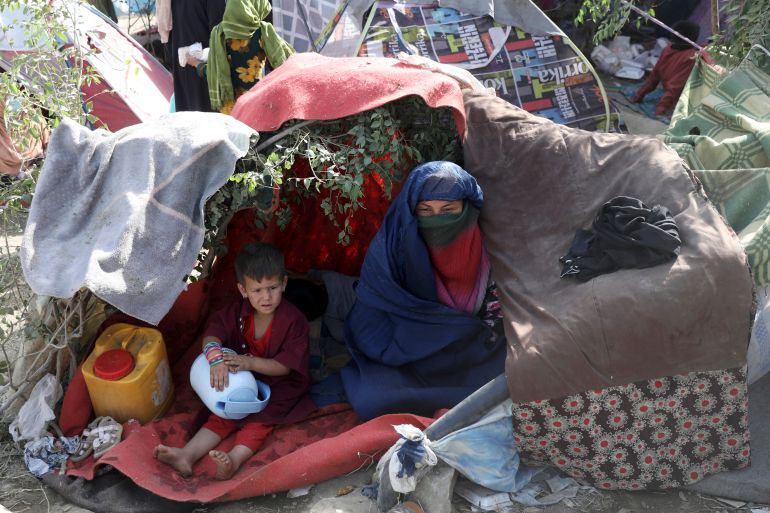Afghanistan on the brink of universal poverty: UN
The UNDP says prolonged drought, the COVID-19 pandemic and political upheaval could cause Afghanistan’s poverty rate to soar to 97 percent by mid-2022.

About 97 percent of Afghanistan’s population may sink below the poverty line unless the country’s political and economic crises are addressed, the United Nations has warned.
In a report released on Thursday, the United Nations Development Programme (UNDP) said that the poverty rate could increase by up to 25 percent as a result of the contraction of Afghanistan’s real gross domestic product (GDP). Half of the country is already in need of humanitarian support.
Keep reading
list of 3 itemsTaliban must allow departures from Afghanistan, Blinken says
Taliban announces new government in Afghanistan
“You have a budgetary shock. You have a reserve shock. If the reserves, you know some $9bn, are to be completely frozen … then you have a trade shock. You have interruption in domestic and international trade,” Abdallah Al Dardari, UNDP’s resident representative in Afghanistan, told Al Jazeera.
“Usually in a country of this situation, the international financial institutions such as the IMF [International Monetary Fund], the World Bank, and all the bilateral and multilateral financial institutions would get together with the UN and propose an economic reform program. We know this is not going to happen,” he said.
Even before the Taliban’s rapid takeover last month, Afghanistan was heavily aid dependent, with more than a third of the country’s GDP drawn from foreign funding.
The UN is urging that the Taliban allow aid workers to do their jobs.
“Let the civil society, local community organisations, manage the [ongoing] projects. Let them implement it. We are not asking for anything. Just don’t obstruct it,” Al Dardari said.
Earlier this week, international aid agencies warned of an “impending humanitarian crisis” in Afghanistan, with medical charity Doctors Without Borders (Medecins Sans Frontieres, or MSF) saying the country’s vulnerable healthcare system was facing a “potential collapse”.
The UN has warned that 18 million people in Afghanistan are facing a humanitarian disaster and the crises will be many and multipronged.
“There would be multiple crises: internal displacement, migration, people fleeing the country, people joining illicit businesses,” Al Dardari told Al Jazeera. “I think the opium trade will flourish, much more than it is today – simply because there is no other jobs. Domestic violence will increase, too. Our duty is to step in now.”
The UN appealed for almost $200m in extra funding for life-saving aid in Afghanistan after the Taliban’s seizure of power resulted in the exodus of aid workers and subsequent funding cuts.
According to the report, a combination of factors could cause Afghanistan’s baseline poverty rate, now at 72 percent, to balloon.
The factors include a prolonged drought, the COVID-19 pandemic, and an upheaval caused by the current political transition.
In response, the UNDP proposed a package of interventions, including essential services and basic income, aimed to support close to nine million vulnerable people, especially women and girls.